Discover groundbreaking research at UCI by Dr. Watanabe and Dr. Tsai. Using cutting-edge organoid technology, they’re modeling Fragile X brain function and advancing potential treatment testing.
Read moreAuthor: FRAXA Research Foundation
SRC Family Kinase Inhibitor as a Potential Treatment for Fragile X Syndrome
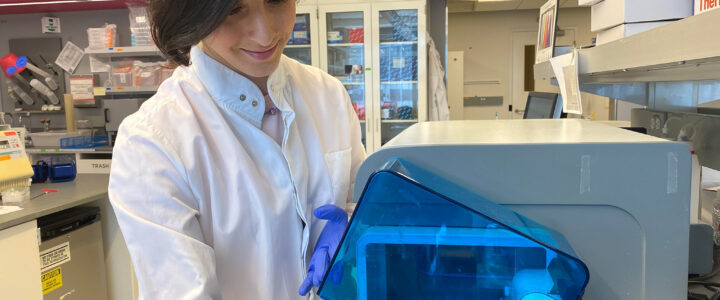
Discover the Smith lab’s new approach to treating Fragile X syndrome using Saracatinib, originally a cancer drug. Learn how this $100,000 FRAXA research grant-funded study opens up hopeful avenues.
Read moreUsing Exosomes to Discover Fragile X Biomarkers

How can a blood test give an accurate picture of brain activity? With this grant from FRAXA, Dr. Martire and Dr. Boussadia will try to use unique particles called exosomes – which can travel from brain cells to the blood stream – to evaluate the effects treatments are having on the brain.
Read moreFRAXA Investigator Lynne Maquat Awarded 2023 Gruber Genetics Prize

Dr. Maquat, 2023 Gruber Genetics Prize winner, discovered NMD, a key surveillance system in the body that protects against mistakes in gene expression. Her groundbreaking research has led to new therapies for Fragile X syndrome.
Read moreComing Together for Rare Disease Day 2023

Today, February 28, we mark Rare Disease Day, a day dedicated to raising awareness about rare diseases and highlighting the need for continued research and collaboration. At FRAXA Research Foundation, we are committed to advancing research on Fragile X syndrome, one of the most common rare diseases worldwide.
Read moreTargeting Cognitive Function in Fragile X Syndrome
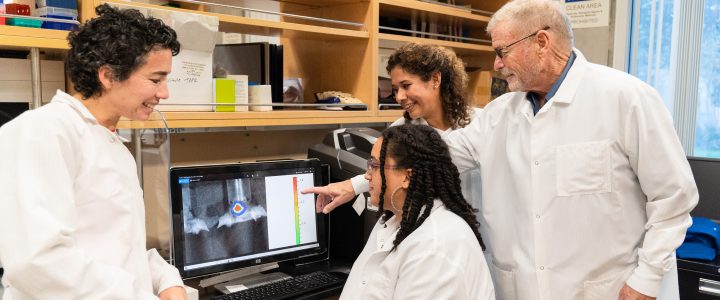
It has long been assumed that the differences between males and females with Fragile X were simply a matter of degree, with males being more severely affected. But gender differences may be far reaching. This team is working to understand imbalances in how the brain’s neurons transmit signals, with a focus on how differently males and females learn and experience anxiety. They are studying two neuronal pathways which are promising targets for treatment.
Read moreValidating Novel Inhibitors of ERK Signalling to Treat Fragile X Syndrome

One promising treatment approach for Fragile X syndrome is to inhibit on a neuronal pathway, ERK. ERK inhibitors are also being studied as treatments for other disorders including autism.
This team has conducted pilot studies showing that ERK inhibitors are very effective in reversing signs of disease in Fragile X mice. With this grant from FRAXA they will take the next steps toward possible clinical trials of an ERK inhibitor for individuals who have Fragile X syndrome.
A Look Back at 2022 and Ahead to 2023 Research Prospects

This holiday season you proved that the adage “actions speak louder than words” is entirely accurate. We sincerely appreciate your gifts in action. FRAXA supporters came out in full force to meet the generous $100,000 challenge offered on Giving Tuesday.
Read moreTargeting Serotonin 1a Receptors to Reverse Neurobehavioral Phenotypes
Neurolixis’ new drug targets serotonin 1A receptors, showing promise in preclinical studies for Fragile X syndrome, funded by a FRAXA grant for future clinical trials.
Read moreMeet Ryder!

Meet #FriendofFRAXA Ryder! If you would like to nominate someone as a #FriendofFRAXA, we welcome all who have been touched by Fragile X, including friends, grandparents, siblings, professionals and companions alike to become a #FriendofFRAXA with the goal of putting a face to Fragile X for those who may not know someone directly.
Read more10 Year Vision for Fragile X Research – Dr. Elizabeth Berry-Kravis & Dr. Patricia Cogram

In this video we hear from FRAXA Investigators Dr. Patricia Cogram, Professor at the University of Chile, and Dr. Elizabeth Berry-Kravis, Professor at Rush University Medical Center as they reflect on the progress that has been made and visualize what they see happening in the next 10 years for people living with Fragile X syndrome.
Read moreDevelopmental Motor Phenotype in Fragile X Syndrome

One of the lesser known signs of Fragile X is unsteady walking. This is also very easy to evaluate in the clinic: no blood tests are required! With a $100,000 grant from FRAXA Research Foundation, this team will develop objective new outcome measures of gait for future treatment trials and also to see if exercise could improve other symptoms of Fragile X.
Read more$269,774 Raised for Fragile X Research on #GivingTuesday

Thank you very much for being a part of yet another fantastic and historic #GivingTuesday! FRAXA raised a total of $269,774 with our matching contributions!! This is incredible. Our work would be impossible without you.
Read moreClinical Trial Results Reported for Phase 3 CONNECT-FX Study of Zygel™

Results have just been published from Zynerba Pharmaceuticals’s phase 3 clinical trial of Zygel™ in the Journal of Neurodevelopmental Disorders. In this trial, 212 children and adolescents aged 3 to 17 years were given Zygel or placebo for 12 weeks.
Read moreSigma-1 Receptor as a Therapeutic Target for Fragile X Syndrome

Dr. Pouladi’s team is exploring a treatment of Fragile X via the sigma-1 receptor. Drugs that boost activity at sigma receptors tend to calm down overactive neurons. They are also powerful anti-inflammatory drugs.
Read moreFragile X Clinical Trial of New PDE4D Inhibitor from Tetra

With a $200,043 grant from FRAXA Research Foundation, Dr. Elizabeth Berry-Kravis completed a successful Phase 2 clinical trial of a PDE4 inhibitor for adult men with Fragile X syndrome. This trial treated 30 males, 18-45 years of age with a new PDE4D allosteric inhibitor from Tetra Discovery Partners using a crossover design, so that everyone got active drug for part of the time and placebo for part of the time.
Read moreVersatile Drug Screening Platform for Fragile X Syndrome
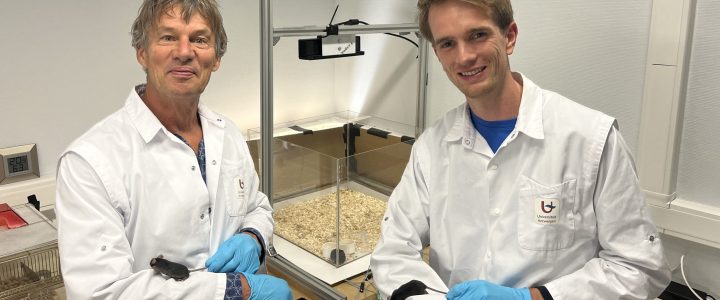
Many experts believe that combinations of drugs may be needed to best treat Fragile X syndrome. How can we find the best combinations in the ideal doses? This project — a collaboration between a top university research team and an innovative AI startup both based in Belgium — tackles this challenge.
Read moreHuman FMR1 Isoform-Specific Regulation of Translation and Behavior
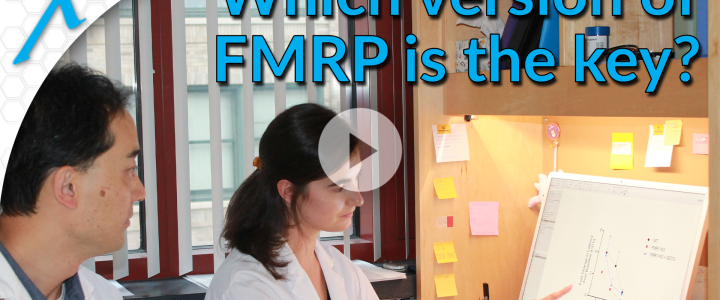
Fragile X syndrome is caused by lack of one protein, FMRP. But this one protein occurs in different variations. Do the different versions of FMRP have different roles in the brain, and if so, is there one that’s key? If we could replace FMRP to treat Fragile X syndrome, which version would we use?
Read moreMeet Conor!
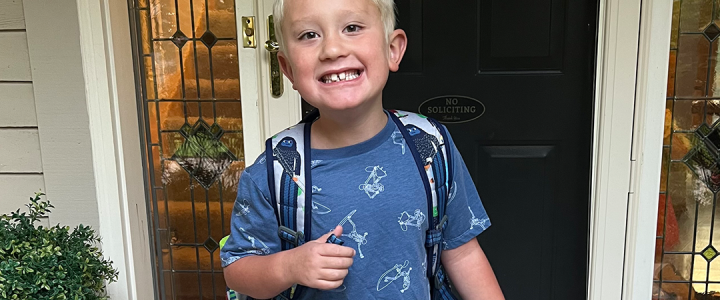
Meet #FriendofFRAXA Conor! If you would like to nominate someone as a #FriendofFRAXA, we welcome all who have been touched by Fragile X, including friends, grandparents, siblings, professionals and companions alike to become a #FriendofFRAXA with the goal of putting a face to Fragile X for those who may not know someone directly.
Read moreMeet Tobias!

Meet #FriendofFRAXA Tobias! If you would like to nominate someone as a #FriendofFRAXA, we welcome all who have been touched by Fragile X, including friends, grandparents, siblings, professionals and companions alike to become a #FriendofFRAXA with the goal of putting a face to Fragile X for those who may not know someone directly.
Read moreFunctional and Genomic Characterization of Interneurons in the Fmr1-KO Mouse Brain

The brain’s balance is maintained by two types of neurons: those that excite and those that inhibit activity. Like yin and yang, this balance is essential. This team has found fewer than normal inhibitory cells in the brains of Fragile X mice. They are now working to pinpoint this abnormality and find ways to restore the normal balance and function.
Read moreTargeting Serotonin 1A Receptors in Fmr1 Knockout Mice
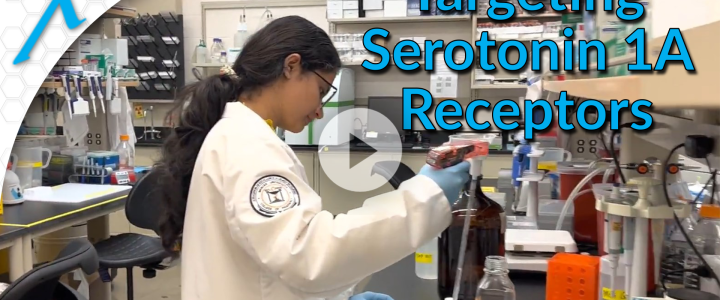
Dr. Canal has discovered a promising treatment approach for Fragile X syndrome: new compounds which specifically and potently boost serotonin in the brain. The target is the brain’s serotonin 1A receptor.
Read moreFRAXA Volunteer Participates in Peer Reviewed Medical Research Program for the Department of Defense

FRAXA nominated advocate, Jennifer Frobish, recently evaluated research applications submitted to the Peer Reviewed Medical Research Program (PRMRP) of the Congressionally Directed Medical Research Programs (CDMRP).
Read moreFamilies Come from Multiple States for Flatbread Pizza Fundraiser

The world seems less scary. We were invited to the pizza party where we met Katie and so many other families. We were welcomed like family! It was such a good feeling to not be alone and have people understand your daily struggles and want change, like you, for Fragile X families.
Read moreWorld Fragile X Day Is Lighting the Way for Fragile X Research

The world shone brightly on July 22 for World Fragile X Day. An impressive 383 locations around the globe lit up to promote awareness and highlight the progress of Fragile X research.
Read more
